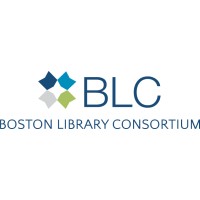
Boston Library Consortium
Founded in 1970, the Boston Library Consortium focuses on resource sharing, professional development, collaboration, and advocacy among 19 public and private academic research universities, liberal arts colleges, special research libraries and state libraries in Massachusetts, Connecticut, Rhode Island, and New Hampshire. Beyond the BLC’s commitment to providing high quality and cost-effective sharing of print and digital content, the consortium serves as a forum for a broad range of library practice areas and as an incubator for projects and initiatives significant to academic and research libraries throughout New England.






